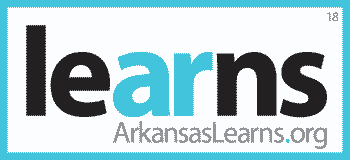On Thursday, January 9th, the Little Rock School Board voted to table the administration’s recommendation to convert Geyer Springs Elementary School to a Gifted & Talented High Ability Academy. The vote to table came at the request of Superintendent Dr. Dexter Suggs following Zone 6 Board Member Tara Shephard’s impassioned opposition to “displacing” students currently enrolled at Geyer Springs.
“Displacing” would mean 2/3 of current Geyer Springs students would be assigned to a higher performing school.
Previously, Shephard was the swing vote in support of Suggs’ recommendation to convert Forest Heights Middle School to a K-8 STEM Academy. Voting “No” on Forest Heights’ conversion were Norma Johnson (Zone 1), C.E. McAdoo (Zone 2), and Dianne Curry (Zone 7).
Dr. Suggs asked to have until the February agenda meeting to incorporate Shephard’s concerns into the plan, and board members, excepting McAdoo, agreed.
The Arkansas Department of Education has the option to take over or consolidate a school district which has been declared in Academic Distress. Academic Distress is a classification assigned to any public school district:
- In which 49.5% or less of its students achieve proficient or advanced in math and literacy on the state-mandated criterion referenced assessments administered in that district for the most recent three (3) year period; or
- Has a Needs Improvement (Priority) school within the school district that has not made the progress required under the school’s Priority Improvement Plan (PIP).
Of the 42 Needs Improvement (Priority) Schools in Arkansas, the Little Rock School District has seven (16.66%), of which Geyer Springs is one.
Over the most recent three years, Geyer Springs’ percentage of proficient and advanced students has dropped 1% in math. Over five years, it has dropped 3%. Over five years, it gained 26% in literacy, but its three-year gain is also 26%, meaning its growth in literacy has flattened over the past two years.
In other words, the lack of growth at Geyer Springs and other District Needs Improvement Priority Schools puts the entire Little Rock School District at risk of state takeover. Add to that the refusal of the board to adopt the recommendation of its six-month-on-the-job superintendent to immediately address Geyer Springs’ performance, and it seems some board members are either oblivious to the risk to the District and their elected positions, or begging the state to put one person in control and throw them out of office.
And that’s just one school. Here is the growth (or lack thereof) on benchmark exams for the Needs Improvement Priority elementary and middle schools:
| Priority School | 3-Year Math | 3-Year Literacy | 5-Year Math | 5-Year Literacy |
| Baseline Elementary | -3% | +10% | +1% | +17% |
| Geyer Springs Elementary | -1% | +26% | -3% | +26% |
| Cloverdale Middle | NA | NA | NA | NA |
| Henderson Middle | +3% | +7% | +12% | +11% |
High school students don’t take benchmark exams, so an apples to apples comparison on growth is problematic. However, here are the latest proficiency rates for the District’s three Needs Improvement Priority high schools.
| Priority School | % Proficient, Advanced Math | % Proficient, Advanced Literacy |
| Hall High | 39.2% | 41.4% |
| J.A. Fair High | 44.3% | 35.6% |
| McClellan High | 43.1% | 43.9% |
The vast majority of students at each of these schools is not proficient in math or literacy, and yet, the schools’ graduation rates are 75.5% (Hall), 59.9% (Fair), and 73.7% (McClellan).
Each year, the Arkansas Department of Education determines if Needs Improvement Priority Schools have met Exit Criteria. Here are LRSD’s results over the past two years.
| Priority School | Met Exit Criteria (2012) | Met Exit Criteria (2013) |
| Baseline Elementary | No | No |
| Geyer Springs Elementary | No | No |
| Cloverdale Middle | No | No |
| Henderson Middle | Yes | No |
| Hall High | No | No |
| J.A. Fair High | No | No |
| McClellan High | No | No |
Out of fourteen annual opportunities over the past two years, Exit Criteria have only been met once.
Since first being designated in 2011, schools may not fall into the Needs Improvement Priority category, they may only emerge. The same holds true for the Needs Improvement Focus Schools, of which LRSD has nine of 89 (10%) schools in the state.
On February 13th, by continuing to resist immediate remedy, LRSD board members could very well vote themselves out of a job.
And whom would Commissioner of Education Dr. Tom Kimbrell appoint to run the state-controlled district? He need look no further than the six-month-on-the-job superintendent fighting to put children first in the District.
Source: Arkansas Department of Education Data, Office for Education Policy
